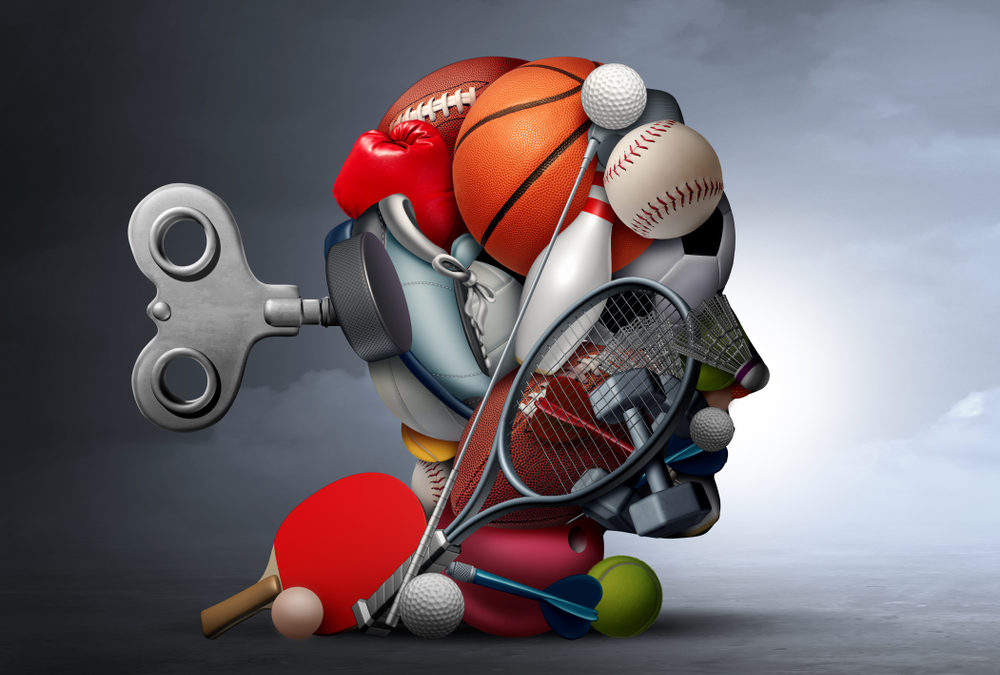What is sport psychology ?
A Sport Psychologist is an individual who has completed a Doctoral degree (e.g., Ph.D., Psy.D.) in the field of psychology, is licensed by the state to practice psychology (LP = Licensed Psychologist) and has additional expertise and training in performance psychology such as: psychological skills training, mental health of athletes, team dynamics in sport settings, psychological factors that influence performance, and assessment of psychological and performance variables. “Applied sport psychology is the study and application of psychological principles of human performance in helping athletes consistently perform in the upper range of their capabilities and more thoroughly enjoy the sport performance process. Applied sport psychologists are uniquely trained and specialized to engage in a broad range of activities including the identification, development and execution of the mental and emotional knowledge, skills and abilities required for excellence in athletic domains; the understanding, diagnosing and preventing of the psychological, cognitive, emotional, behavioral and psychophysiological inhibitors of consistent, excellent performance; and the improvement of athletic contexts to facilitate more efficient development, consistent execution and positive experiences in athletes.” (American Psychological Association Division 47, 2016).
What do sport psychologists study in school ?
Sport psychology is comprised of two general fields of study: performance psychology and counseling/clinical psychology. Performance psychology emphasizes the use of mental skills training (e.g., focus training, goal setting, imagery, energy management, self-talk) and works to educate clients on how to use these skills effectively during performance. To provide performance enhancement services, an individual’s graduate training will often include coursework in kinesiology, exercise physiology and/or sport science, but does not include extensive training in counseling/clinical psychology, therefore individuals solely trained in performance psychology are not licensed psychologists; however they will often seek certification by the Association for Applied Sport Psychology (AASP) as a certified consultant.
Clinical/Counseling psychology applies complex psychological theories to counseling interventions with performers/athletes and focuses on personal development, well-being, and treating psychological problems such as stress, depression/anxiety, relationship issues, substance abuse, disordered eating, or other mental health concerns. Clinical and counseling sport psychologists are licensed by law, and are therefore legally allowed to use the term “psychologist” in their title. Terms such as “psychological” or “psychology” are also protected terms in the state of Minnesota to licensed psychology professionals. While these individuals are trained in graduate psychology programs, many obtain additional education and training in performance psychology and do practicums in sport and exercise settings. They too can seek additional certification by (AASP) as a certified consultant.
Professionals within sport psychology are often licensed psychologists, other licensed mental health professionals, or kinesiologists/exercise scientists who are frequently certified consultants by a sport psychology organization (e.g., AASP) or can demonstrate comparable training to meet a similar certification requirement. The field is complex in this way and does not have one training model to reflect competency. People without these credentials who claim to offer sport psychology services may not have received proper training or supervision in the field, and thus may not be able to provide quality service. Anyone seeking consultations should always ask about the professional’s credentials, education, consulting experience, clientele, and current membership in professional organizations.
What do you do as a sport psychologist ?
It varies! Sport psychologists are well-trained to work in applied settings as both performance-enhancement consultants as well as mental health counselors, and most of the time the work heavily overlaps. They can teach mental skills, conduct research, work with team/coaches/athletic staff, present or lead workshops, teach, or do program development to name a few. Sport psychologists can work in private practice, at universities, for sport organizations, in counseling centers, for healthcare systems, or in the military, among many other settings.
What so you like most about the field ?
Helping individuals overcome personal or athletic challenges is pretty rewarding. Many times, individuals are frustrated that they are not reaching their potential or they may have personal things going on in their life that are negatively impacting their performance, and being able to help them sort through it all and reach their goals is satisfying.
What do you find most challenging about the field ?
The field is not well defined, and thus, there are many individuals who will advertise themselves as “sport psychologists” who are not. It’s difficult to have to compete in a profession with individuals with much less training or no training because the hiring individual does not know what to look for in a competent sport psychology professional. Also, the field is young, so you will find that you sometimes have to educate teams/athletes/coaches/sport groups that you have a valuable service that can be useful. The field is growing, but there are very few actual jobs posted and advertised in the field, so many individuals upon graduation have to work hard for a position or get creative in “paving” their own path or creating a position for themselves. Many hold a primary job in teaching or research and provide applied sport psychology services on the side.





